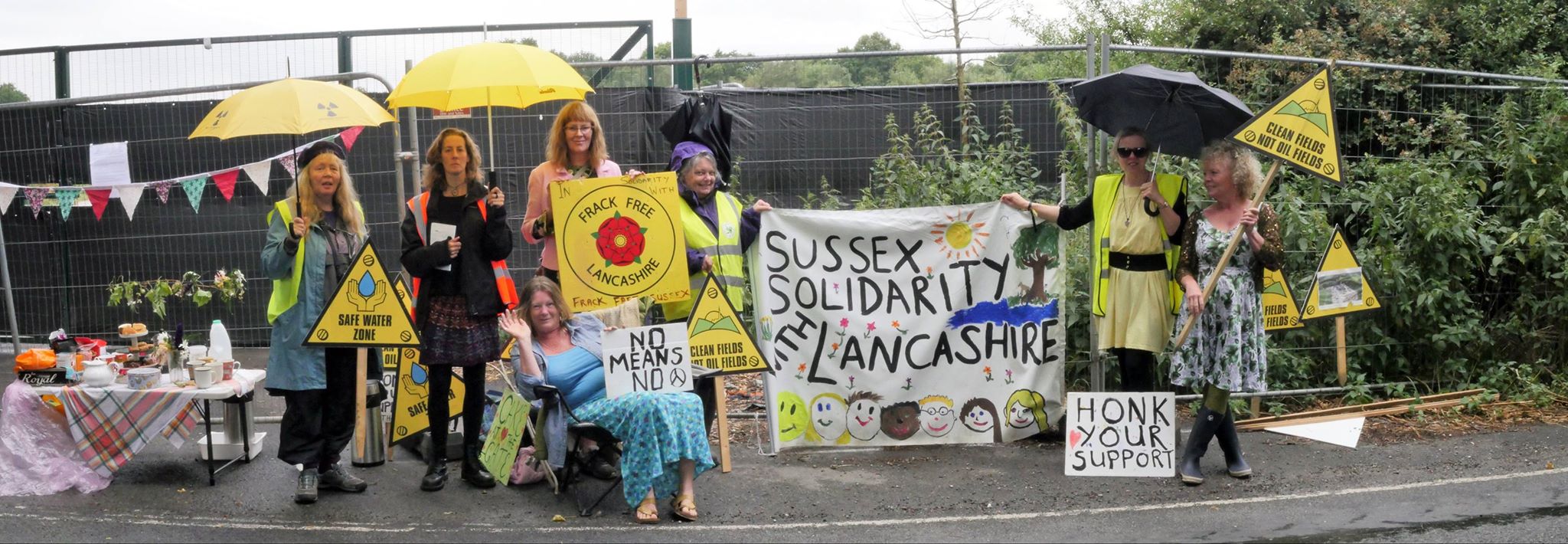Fracking vote result
On the motion: Should time be made for MPs to debate a fracking ban?
MPs have voted 230 for yes, 326 for no.
The government wins the vote.
Comments from MPs
Labour MP Chris Bryant said cabinet ministers Thérèse Coffey and Jacob Rees-Mogg were among a group of senior Tories who were putting pressure on Conservative MPs to vote against the Labour motion on fracking.
Rees-Mogg has denied this, telling Sky News there was “no action that I saw” in regards to any wrongful behaviour.
Asked if what he saw was bullying, he said: “From what I saw, no.”
Labour MP Chris Bryant said Alexander Stafford, the Conservative MP for Rother Valley was “manhandled” and “bullied” in the voting lobby.
Bryant told Sky News: “There was a bunch of Conservative members who were completely uncertain about whether they were allowed to vote with the Labour motion because of what had been said in the chamber about whether it’s a free vote or a confidence vote.
“There was a group – including several cabinet ministers – who were basically shouting at them. At least one member was physically pulled through the door into the voting lobby.”
Commons veteran Chris Bryant says he saw members being “physically manhandled” and bullied into a voting lobby and calls for an investigation into what happened. Says this goes against behaviour code of MPs
Ian Murray MP said I’ve never seen scenes like it at the entrance to a voting lobby. Tories on open warfare. Jostling and Rees Mogg shouting at his colleagues. Whips screaming at Tories. They are done and should call a general election. Two Tory whips dragging people in. Shocking.
Lloyd Russell-Moyle MP said Just seen Tory whips manhandling a crying Tory MP into their lobby for fracking. You couldn’t make this toxic stuff up, nasty to see the Tories at work, if this is how they treat their MPs spare a thought for the country.
Massive Tory row going on in the lobby, literally trying to force people through. Lots of anger. Jess Phillips MP
A Conservative MP said the government frontbench should “hang their heads in shame” as she said the leadership had “severely tested” Tory MPs’ trust.
Ruth Edwards, the Conservative MP for Rushcliffe, did not say she would vote against the government, saying: “I don’t support fracking, but I am even less keen on the idea of letting the Labour party play at being in government for the day.” She told MPs: “My final observation tonight is for our own frontbench. For they have enabled the opposition to force colleagues to choose between voting against our manifesto and voting to lose the whip.
“They should take a look at the faces of colleagues behind them, colleagues who have fracking sites in their constituencies, and they should hang their heads in shame.
“A Conservative government will always have my confidence, but its leadership today has severely tested my trust and the trust of many colleagues and I would advise them not to do so again.”
The backbencher Sir Charles Walker told BBC News the following:
As a Tory MP for 17 years, who’s never been a minister, who’s got on with it loyally most of the time, I think it’s a shambles and a disgrace. I think it is utterly appalling.
I’m livid and, you know, I really shouldn’t say this but I hope all those people that put Liz Truss in No. 10 – I hope it was worth it. I hope it was worth it for the ministerial red box. I hope it was worth it to sit around the cabinet table, because the damage they have done to our party is extraordinary.
I’ve had enough. I’ve had enough of talentless people putting their tick in the right box, not because it’s in the national interest, but because it’s in their own personal interest to achieve a ministerial position.







